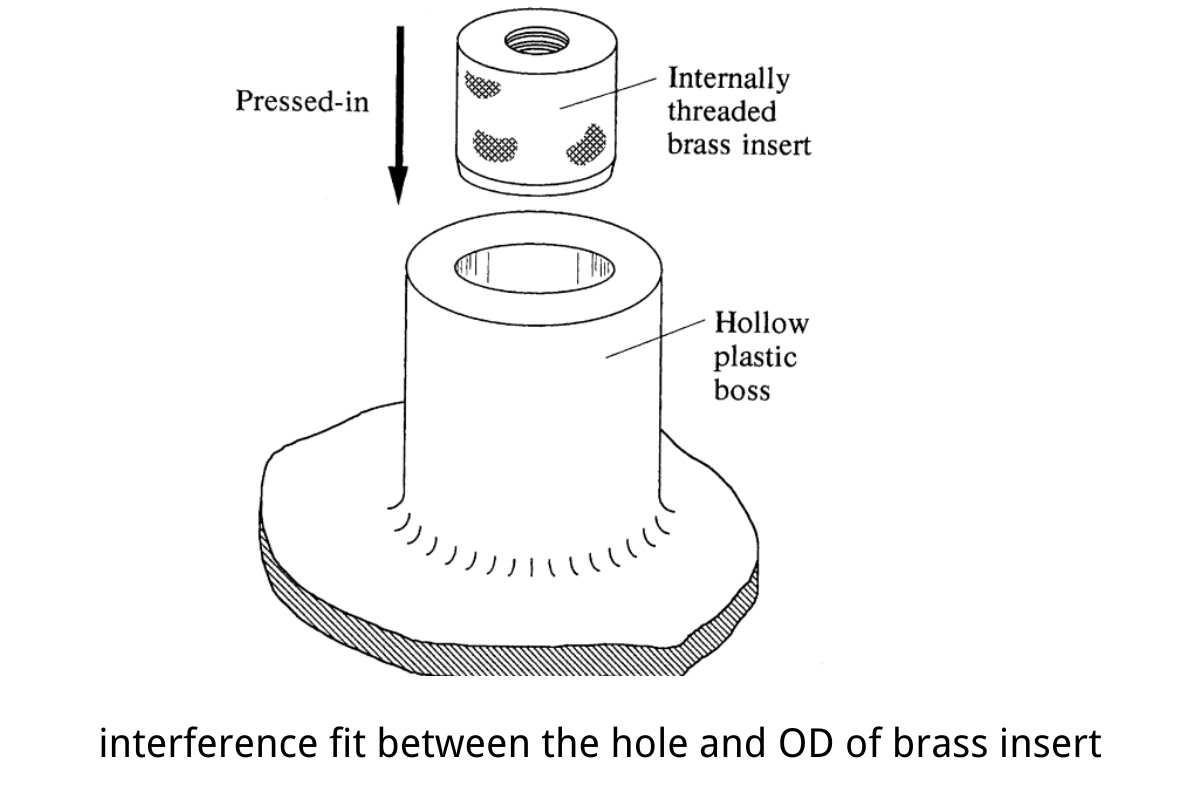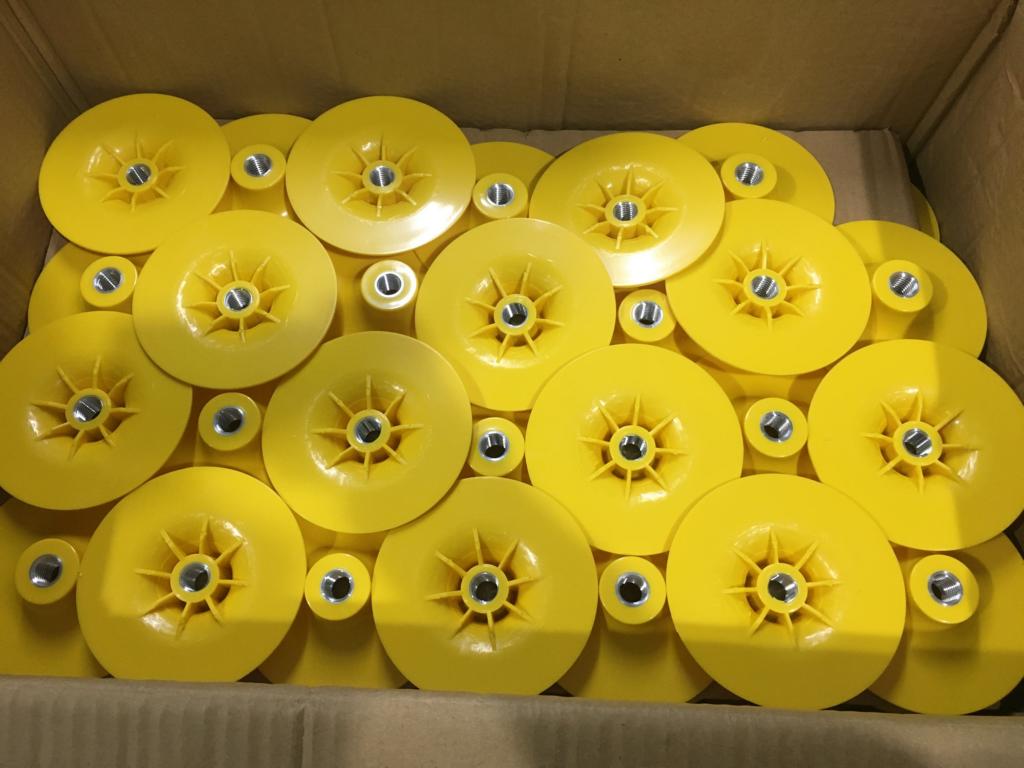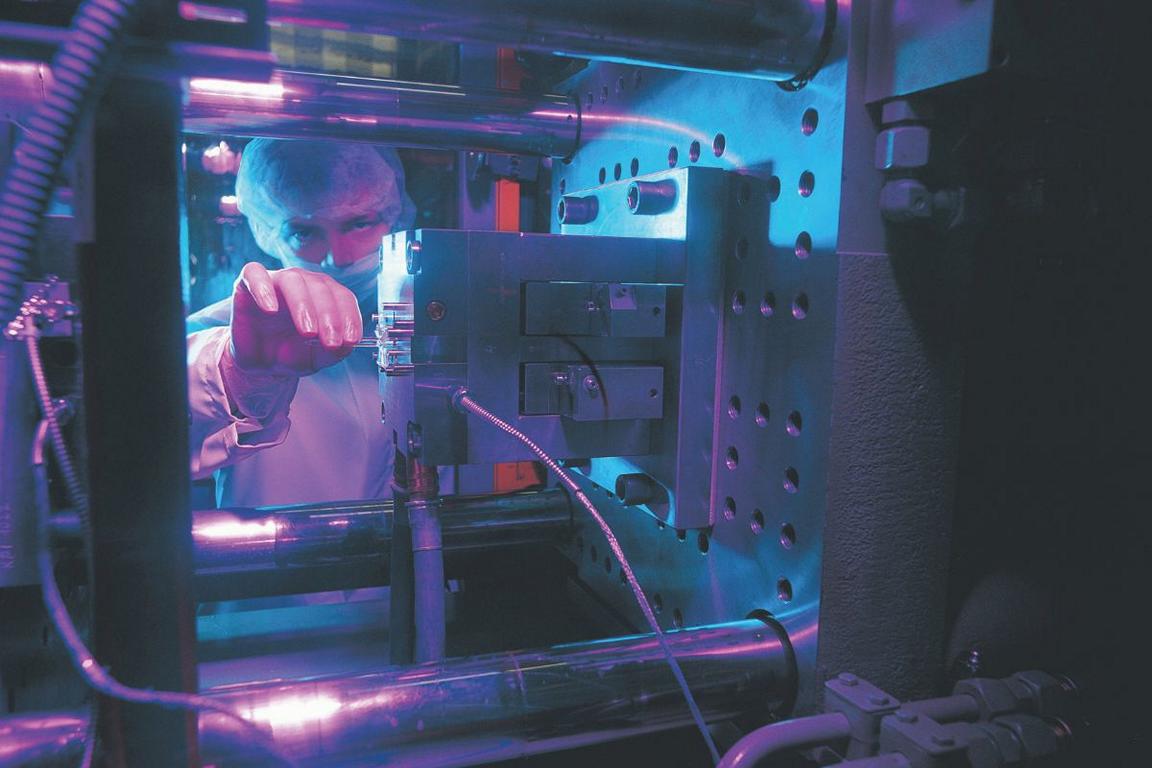Qu'est-ce que le moulage inerte
Moulage d'insertion, also known as metal insert molding or surmoulage, is a manufacturing technology that produces pre-formed plastic parts. It is a type of overmolding where the substrate is inserts rather than plastic parts. Before molding, the insert is inserted into an injection overmold, creating a single final product that combines a single molding part with inserts. The insert, which can be made of metals, ceramics, copper screws, or other plastic or metal materials, is inserted in a mold cavity before being injected with plastic resin.
If the inserts are constructed of plastic or molded plastic pieces, we call this overmolding, whereas the first shot of the plastic insert part is referred to as the substrate. If the inserts consist of metal, we will refer to the process as moulage par insertion de métal.
Many industries on the global market, including electronics, automotive, furniture, and many more, use insert molding extensively to reduce assembly costs for parts that require extreme strength, durability, and precision. Insert molding can produce complex plastic products with different insert materials or components in a single molding process, eliminating the need for separate assembly steps and lowering production costs.
In addition, moulage par insertion can increase part quality and reliability by forming a strong link between the insert and the plastic resin. We call this metal brass moulage par insertion or screw insert molding when we insert metal screws and plastics into a molded part or when we mold different brass screws or materials into a single molding part.
Custom insert molding not only lowers assembly and labor costs, but it also outperforms assembly parts by reducing the size and weight of the part, enhancing component reliability, and delivering improved part strength and structure with enhanced design flexibility.
Today, over 90% of insert molded parts come from Entreprises chinoises de fabrication de moules, where low labor costs and high-quality control are significant factors. They can assemble and ship your final parts from China.
Nous sommes des professionnels de la fabrication de moules en plastique depuis plus de 18 ans. Nous disposons d'une solide équipe d'ingénieurs, d'une équipe de fabricants de moules et d'une équipe de production chargée du contrôle de la qualité.
We can handle your project from start to finish, regardless of whether it involves normal injection molding, 2K injection molding, moulage d'inserts sur mesure, medical plastic inejction molding, metal insert molding, automobile industrial molding, cosmetic injection molding parts, home appliances injection molding, certificate, services d'assemblage de produits, and product packing. if you have an insert molding project in hand that is looking for a professional injection molding company, welcome to send us your project, we will quote you a price in 24 hours.
Le processus de moulage par insertion
Les moulage par insertion process starts off by either inserting the metal inserts before the injection molding process (normally used technology) or they can be inserted after the injection molding process (pressed in). An insert molding process operator or a robotic arm will load the inserts into the mold if you choose to insert them before the plastic injection molding process.
Si l'on choisit d'insérer les inserts métalliques après le processus de moulage par injection de plastique, certains outils de pressage peuvent être nécessaires après le processus de moulage par injection de plastique. processus de moulage par injection est terminée et la pièce est refroidie. Ensuite, il faut presser les inserts filetés dans le trou ou le bossage creux. Il existe deux types de moulage d'inserts par pression : le moulage par pression à froid et le moulage par pression à chaud.
Simply put, cold pressed moulage par insertion presses a cold metal screw or other insert into the hole position, while hot pressed insert moulding inserts a hot metal insert into the hole position and cools the metal part. Both types of molding process necessitate an interference fit between the diameter of the hole and the metal insert.

Typically, moulage par insertion integrates the insert into the mold prior to the injection molding process, which is its primary benefit. Everything we discuss below pertains to this process, which we can refer to as insert injection molding or overmolding.
Cette procédure réduit idéalement les coûts d'insertion, ce qui peut permettre à nos clients d'économiser des coûts substantiels sur les projets de moulage par insertion. Si vous souhaitez en savoir plus sur le moulage par injection d'inserts, vous pouvez consulter le moulage par injection d'inserts page pour plus d'informations.
In the context of the insert molding process, the use of a robotic arm for part handling can yield significant benefits. When it comes to removing the molded parts and getting them ready for more processes, a multiple-axis robot can do that faster and more accurately than a human. After the molded part is created and ejected from the mold, the robot grips the part and moves it to either a location to be held or onto a system to be inspected. The general layout of the manufacturing equipment and the type of product under creation determine this decision.
In order to assure a high level of quality for many parts that go through moulage par insertion, robots can have vision systems mounted on them. These vision systems inspect parts faster than humans and know exactly what the metal component’s placement accuracy is.
Several industries thrive on the products created through the insert moulding process. Indeed, this type of custom injection insert molding process produces a wide range of products.
Acheter des moulures d'insertion auprès d'un Chinois moule d'injection entreprise will save a lot of money since the labor costs are low in China. Below is the plastic injection molding part that is created through this type of custom insert molding process. This is the brass insert molding part, which has more than 20 metal screws molded together with the PC plastic material.

Insert Molding vs. Overmolding
Insert molding is a sort of overmolding; nevertheless, there are also few differences between insert molding and overmolding. Below, we have listed some of the most important differences between overmolding and insert molding.
Moulage par insertion :
Insert molding is a process that involves placing a pre-formed part, which is often made of metal or plastic, into the cavity of the mold. After that, molten plastic is injected around the pre-formed portion to make a single part. When the insert is incorporated into the component, it ends up supplying the component with mechanical strength, electrical conductivity, or other particular characteristics.
This molding manufacturing process is commonly used for manufacturing items like threaded fasteners, electrical connectors, and tools.
Insert molding, typically, only one material is injected in this process, with the insert providing functionality.
Surmoulage :
In the overmolding process, a second plastic material is put on top of a base plastic part. Injection molding tools are also used to make the base plastic part. The first part, called the substrate, is usually rigid, and the second part, called the overmold, is usually softer or more flexible. For example, a thermoplastic elastomer (TPE) is poured over the substrate to make it more comfortable, flexible, or nice-looking.
Overmolding is a process that is usually used for plastic parts that need to be bonded to other materials, like soft-touch grips or seals.

Key Difference:
Insert molding normally incorporates a hard insert into the molded part, whereas overmolding process involves adding a layer of material over an existing substrate for added features like flexibility or texture.
Insert molding costs.
There are some factors that affect insert molding costs.
Le prix de l'insert détermine le premier composant. Il est possible de créer des inserts à partir de divers matériaux de moulage, tels que des plastiques comme l'ABS, le PC ou le PA, et des inserts métalliques comme l'acier ou l'aluminium. Le matériau utilisé, la taille et la complexité de l'insert, ainsi que la quantité nécessaire, ont une incidence sur le coût des inserts. La fabrication de 100 pièces d'inserts, par opposition à 1000 inserts métalliques, se traduira par un prix unitaire sensiblement différent.
The cost of the insert mold contributes significantly to the total cost of moulage par insertion. The mold plays a crucial role in the injection molding process since it defines the finished part’s shape and characteristics. This initial cost will exceed the unit cost; if you plan to manufacture thousands of parts, creating insert molds will be beneficial. If the insert is made of plastic by injection molding technology, then we may call it overmolding. This will require two molds, one for the first plastic parts and one for overmolding, which will increase the initial mold cost.
La main-d'œuvre est un autre facteur important dans les coûts du moulage par injection d'inserts. Par rapport au moulage par injection standard, le moulage par injection d'inserts nécessite davantage de main-d'œuvre, car les opérateurs doivent placer manuellement les inserts dans le moule avant chaque injection. Cela augmente le temps de cycle et le coût de la main d'œuvre.
La consultation d'un fabricant professionnel de moulage par injection permettra d'obtenir une estimation précise des coûts de moulage par injection d'inserts. Il peut évaluer les exigences spécifiques de votre projet et fournir une analyse détaillée des coûts sur la base des données et des spécifications 3D, du taux de déchets et du volume de production. Cela vous aidera à prendre une décision éclairée et à déterminer si le moulage par injection d'inserts est le bon choix pour votre projet. N'hésitez pas à nous envoyer votre projet de moulage par injection d'inserts et nous vous ferons parvenir un devis dans les 24 heures.
Vous trouverez ci-dessous quelques-uns des pièces moulées par injection sur mesure nous l'avons déjà fait. Si vous avez un projet qui nécessite un moulage par insertion en laiton, surmoulage, or any metal moulage par injection d'inserts, send us your requirements for a quotation.

Avantages du moulage par insertion
Le moulage par injection d'inserts est un substitut extrêmement efficace aux techniques conventionnelles d'assemblage de pièces d'inserts à l'aide d'adhésifs, de raccords, de soudures, de brasages ou d'attaches. Cette méthode de pointe présente de nombreux avantages qui peuvent améliorer considérablement l'efficacité et le calibre de vos composants moulés. Voici quelques avantages du moulage par injection d'inserts par rapport au moulage par injection traditionnel.
Réduction des pièces finales de moulage
The smaller molding pieces produced by insert molding are among its main benefits. Compared to conventional assembly techniques, this moulage par injection d'inserts process creates smaller pieces by molding metal inserts with plastic during the molding process. This shrinkage enhances the overall performance of the molding process in addition to saving material costs. Additionally, a significant reduction in the parts’ weight enhances both performance and cost-effectiveness.
Diminution des frais de main-d'œuvre et d'assemblage
Le moulage par insertion permet non seulement de réduire la taille des pièces, mais aussi de diminuer considérablement les coûts de main-d'œuvre et d'assemblage. Contrairement aux méthodes d'assemblage traditionnelles à plusieurs étapes et à forte intensité de main-d'œuvre, le moulage par injection d'inserts intègre deux éléments ou plus dans une seule pièce de moulage en une seule fois. Cette méthode efficace réduit considérablement les coûts de main-d'œuvre et d'assemblage. Des procédures d'assemblage complexes ne sont pas nécessaires, car tout ce qui est demandé à un ouvrier pendant le processus de production du moulage est de simplement placer l'article métallique dans le moule. En outre, un seul tir est parfait pour les pièces moulées à inserts complexes, car il peut façonner un ou plusieurs inserts.
Fiabilité renforcée
La fiabilité accrue qu'offre le moulage par insertion est un autre avantage notable. Le processus de moulage par insertion garantit une liaison solide et durable en moulant étroitement chaque composant dans le thermoplastique. Cela permet d'éviter les problèmes courants liés au processus d'assemblage, tels que le desserrage des pièces, la non-concordance et le désalignement, entre autres. L'utilisation de résine plastique dans le processus de moulage accroît encore la résistance des pièces aux contraintes et aux vibrations, améliorant ainsi leur fiabilité et leur durabilité.
Flexibilité de conception améliorée
Insert molding makes it simple for designers to think about how those parts should be assembled together. By eliminating the need to think about how to assemble pieces or attach metal and plastic components together, designers can save time and focus on other aspects of the design. This special molding process simplifies the solution to numerous design problems.
Réduction des dépenses de moulage par injection et amélioration de la productivité
Le moulage par insertion permet d'améliorer l'efficacité et de réduire les coûts globaux du moulage par injection. Les opérateurs peuvent éprouver des difficultés à placer les inserts pendant l'étape de moulage, en particulier s'ils travaillent avec des pièces métalliques petites ou nombreuses susceptibles de tomber. En revanche, l'utilisation de machines d'injection verticales augmente considérablement la productivité, fait gagner du temps et réduit le risque de chute ou d'égarement des inserts. Cela permet de réduire le coût du moulage par injection tout en améliorant l'efficacité globale du processus de moulage.

Si vous avez un insert moulage project in hand, contact us to get a price. We have been in this field for over 18 years, specializing in custom insert molding. We are experts at providing moulage par insertion services that are tailored to each individual client’s needs.
Comme chaque projet est différent, Sincere Tech fait partie du top 10 fabricants de moules en Chine and provides a variety of moulage d'inserts sur mesure options to meet the specific requirements of each of our clients. To guarantee that we offer the highest quality insert mold and any other custom injection mold, we have skilled mold makers that operate with cutting-edge machinery.
Notre services de moulage d'inserts are excellent and reasonably priced. In order to maintain cheap prices while producing high-quality insert injection molding goods, we employ cutting-edge technology. This enables us to offer low pricing to our clients without sacrificing quality.


